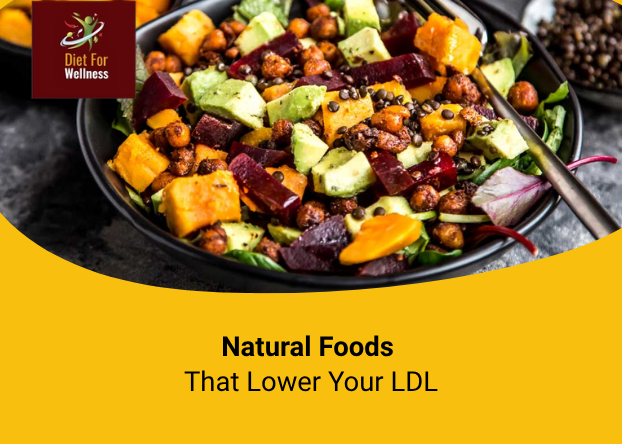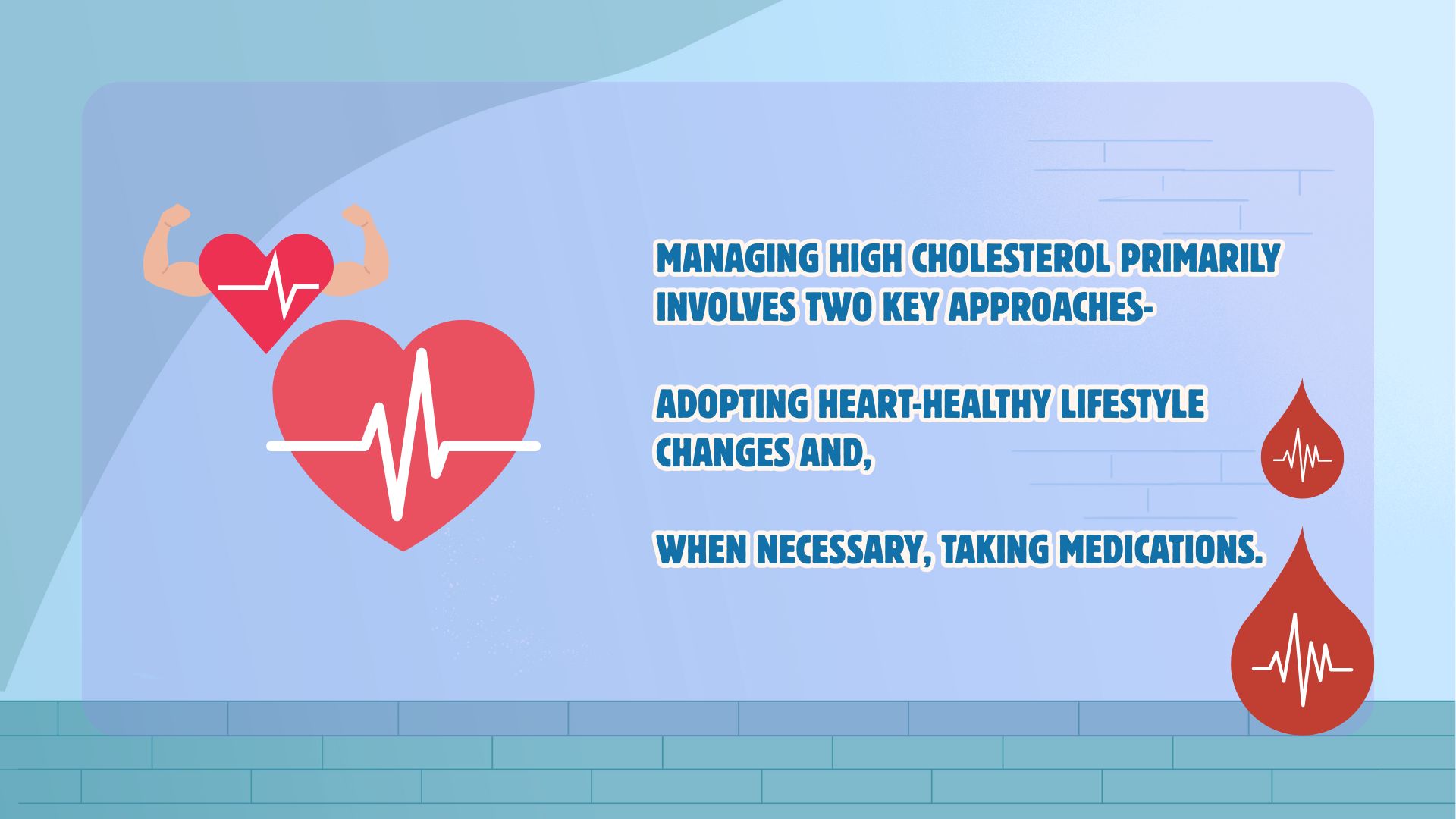Natural Foods That Lower Your LDL

Cholesterol, a waxy, fat-like substance, is naturally present in every cell of your body. It’s essential for your body to function correctly. However, an excessive amount of cholesterol in your bloodstream can accumulate on artery walls, leading to their narrowing or even blockage. This condition significantly increases your risk of developing coronary artery disease and other heart-related illnesses.
Your liver produces cholesterol, which is transported throughout your bloodstream by proteins known as lipoproteins. Low-density lipoprotein (LDL), referred to as “bad” cholesterol, results in cholesterol buildup in your arteries when its levels are high. On the contrary, high-density lipoprotein (HDL), or “good” cholesterol, transports cholesterol from various parts of your body back to your liver, where it is then eliminated.
Treating High Cholesterol

Lifestyle Modifications
- Nutritious Eating– Focusing on a balanced diet rich in fruits, vegetables, whole grains, and lean proteins, while limiting saturated and trans fats, cholesterol, and added sugars, is crucial.
- Weight Management– Maintaining a healthy weight can impact cholesterol levels.
- Regular Physical Activity– Engaging in consistent exercise helps improve cholesterol profiles and overall cardiovascular health.
Making thoughtful dietary adjustments can significantly contribute to lowering your cholesterol levels. Several eating plans, such as the DASH diet and the Therapeutic Lifestyle Changes (TLC) diet, emphasize heart-healthy choices. Here’s a breakdown of key dietary strategies:
Prioritize Healthier Fats
It’s important to manage your intake of dietary fats, particularly saturated fat, which has a direct impact on your “bad” cholesterol (LDL) levels. Go for total fat to constitute no more than 25-35% of your daily calories, with saturated fat making up less than 7%.
Foods high in saturated fat are certain meats, full-fat dairy products, chocolate, many baked goods, and deep-fried or highly processed items. Instead, go for lean meats, nuts, and unsaturated oils like canola, olive, and safflower oils.
Reduce Dietary Cholesterol
To lower your cholesterol, consume less than 200 mg of dietary cholesterol daily. Cholesterol is found in animal-derived foods such as organ meats (like liver), egg yolks, shrimp, and whole milk dairy products.
Boost Soluble Fiber Intake
Soluble fiber plays a vital role in preventing your digestive system from absorbing cholesterol. Strive for 10-25 grams of soluble fiber per day. Excellent sources include whole-grain cereals (e.g., oatmeal, oat bran), fruits (e.g., apples, bananas, oranges, pears, prunes), and legumes (e.g., kidney beans, lentils, chickpeas, black-eyed peas, lima beans).
Incorporate Plenty of Fruits and Vegetables
Fruits and vegetables are essential for a healthy diet, providing crucial vitamins, fiber, and various other nutrients that support overall well-being.
Increase Plant Stanols and Sterols
These plant compounds help block the absorption of cholesterol in your digestive tract. Aim for about 2 grams per day. They are naturally present in whole grains, nuts, legumes, and oils like olive and avocado oil. You can also find them in certain fortified foods such as some orange juices, margarines, and breads.
Consume Foods Rich in Omega-3 Fatty Acids
Omega-3 fatty acids are beneficial fats that can help lower LDL and triglyceride levels, contribute to blood pressure control, and may reduce the risk of heart rhythm problems. For individuals with heart disease, they may even lower the risk of heart attack.
Good sources include salmon, tuna (canned or fresh), and mackerel. Most adults should aim for two servings of these fish per week. (Pregnant or breastfeeding individuals should avoid high-mercury fish like mackerel.) Keep in mind that walnuts, flaxseed, chia seeds, canola and soybean oils offer smaller amounts of omega-3s compared to fish. Some brands of yogurt, eggs, juices, milk, soy beverages, and infant formulas are also fortified with Omega 3 Fatty acids.
Limit Sodium (Salt) Intake
While limiting salt won’t directly lower cholesterol, it’s crucial for heart health as it can help manage blood pressure. Try to limit your total sodium intake to no more than 2,300 milligrams (approximately 1 teaspoon) daily, including all sodium from cooking, at the table, and in processed foods. Go for low-salt or “no added salt” options and seasonings.
Moderate Alcohol Consumption
Excessive alcohol intake can contribute to weight gain, which can, in turn, elevate LDL levels and decrease “good” cholesterol (HDL). It can also increase blood pressure and triglyceride levels, raising the risk of heart disease. If you choose to drink, moderate your intake to no more than 2 drinks per day for men and no more than 1 drink per day for women.
Utilize Nutrition Labels
Learning to read nutrition labels on food products can empower you to make informed choices about fat, saturated fat, cholesterol, fiber, and sodium content, thereby supporting your efforts to eat healthier and manage your cholesterol.
